Forums
The Youth Forum of the World Petroleum Council Was Held in Almaty
From September 29 to October 2, the VII Youth Forum of the World Petroleum Council was held at the Kazakh-British Technical University (KBTU). The event participants – industry experts and young specialists – discussed the topics of the energy transition, prospects, and future challenges for the global oil and gas industry. The global discussion platform gathered more than 700 delegates from 29 countries. More than 20 events were held at the Forum, where 112 speakers gave speeches.
The main practical result was the adoption of the Forum's resolution, which was named after the place of adoption – the Almaty Declaration of the WPC. In the resolution, all member countries of the organization confirmed their readiness to join efforts in discussing and developing recommendations for the future of the petroleum and energy sectors.
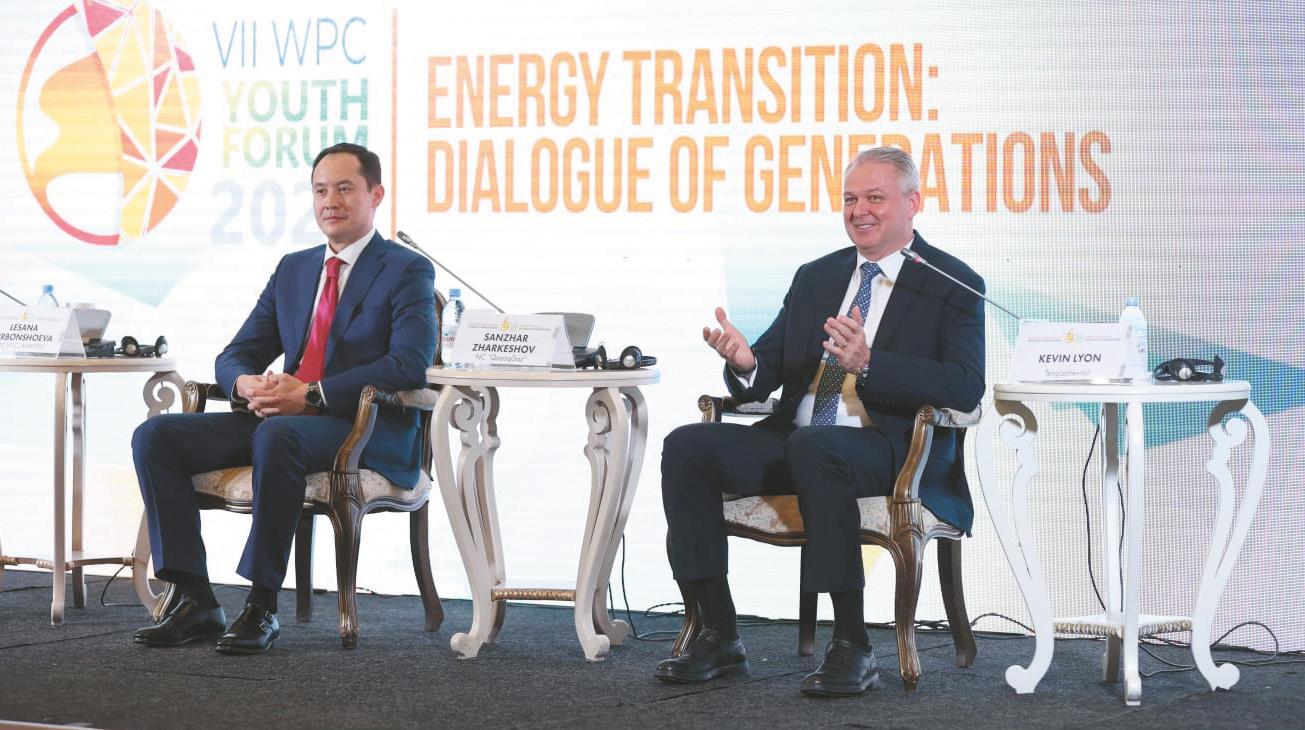
Sanzhar Zharkeshov, Chairman of the Board of QazaqGaz, and Kevin Lyon, General Director of Tengizchevroil
Breakfast with the "generals" of the industry
The first event of the Youth Forum was a business breakfast, during which Sanzhar Zharkeshov, Chairman of the Board of the national company QazaqGaz, and Kevin Lyon, General Director of Tengizchevroil, told students and young professionals about the work of the companies, their vision of the current situation and prospects for the development of the oil and gas industry and the energy transition.
During the meeting, Kevin Lyon noted that in the next ten years, we would see an increase in the number of innovative projects in renewable energy sources. He outlined three key factors in the energy sector that may affect the possibilities of an early energy transition. The first is the changes taking place in the world, which have shown the importance of reliable and safe energy supplies. The second is the need to consider that energy prices should be acceptable to the population of the countries. In particular, in Kazakhstan, the prices of gasoline and diesel fuel, and liquefied gas are among the lowest in the world, which positively affects the country's economy and people's livelihoods. Third, a balance is needed between energy security and the availability of energy resources. A harmonious transition to renewable energy sources is possible only when these factors are considered.
The head of QazaqGaz believes that in the next 10-20 years, gas will become the most popular type of fuel, which, according to him, will be a bridge to the energy transition. He also stressed that it is impossible to unequivocally abandon the use of traditional types of energy resources, in particular, coal. In connection with recent political events, a "renaissance" of coal has emerged in Europe. Kazakhstan, which has coal reserves enough for almost 400 years, should continue to use it, but with the latest, clean technologies.
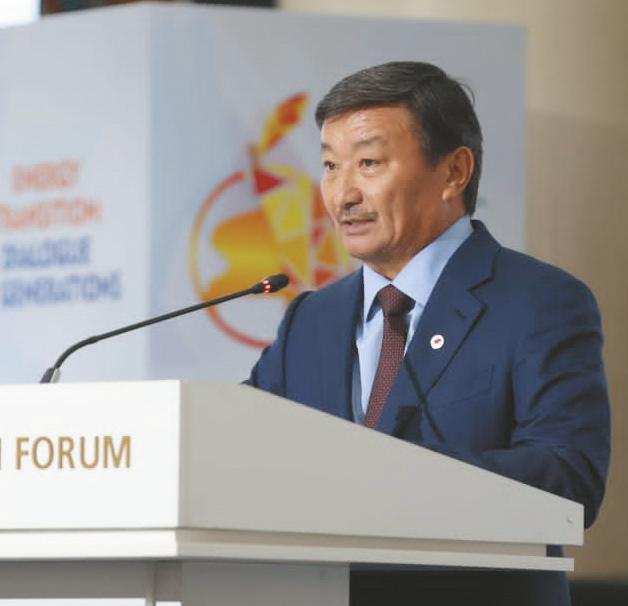
Dzhambulat Sarsenov, Deputy Chairman of the Kazakhstan National Committee of WPC
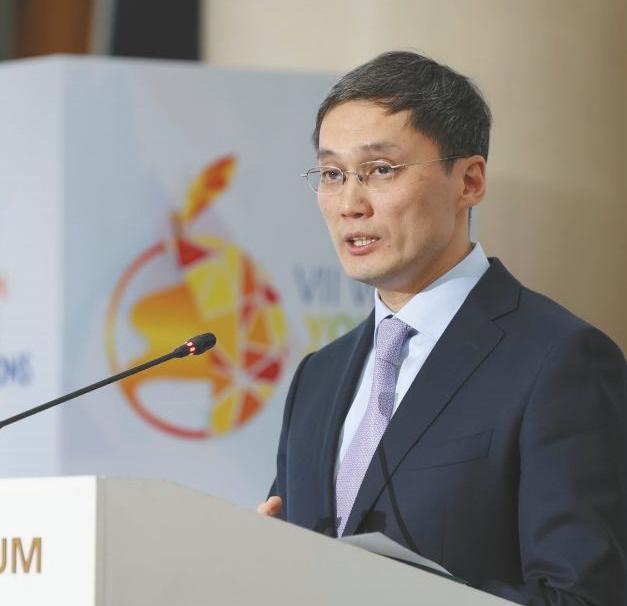
Murat Zhurebekov, First Vice Minister of Energy
Energy transition: dialogue of generations
The key plenary session of the Forum "Energy Transition: Dialogue of Generations" was held in the legendary Independence Hall (as it is known, KBTU is located in the building of the former Supreme Council of Kazakhstan). It was opened with a video message from the President of the Republic of Kazakhstan, Kassym-Jomart Tokayev.
The Head of State noted that the World Petroleum Council is a global dialogue platform that attracts young specialists from different countries to search for new approaches to accelerate changes in the energy sector. The oil and gas sector plays a vital role in the socioeconomic development of Kazakhstan. Over the years of independence, more than $200 bln of foreign direct investment has been attracted to the industry. Today, the country emphasizes the development of the gas and petrochemical industry. Thus, soon it is planned to launch the largest polypropylene production plant in Central Asia with a production capacity of 500 thous. tons per year.
Kazakhstan is the first state in the CIS to ratify the Paris Agreement. The country has set itself an ambitious goal to achieve carbon neutrality by 2060. A special long-term strategy is adopted for its implementation. Young specialists and scientists can make a significant contribution to the development of the energy of the new millennium, the President of Kazakhstan stressed.
Murat Zhurebekov, First Vice-Minister of Energy, who spoke afterward, talked about new scenarios for the development of the oil and gas industry in Kazakhstan: "We occupy one of the leading places in oil reserves and production in the world. Today, Kazakhstan is among the top 15 countries in the world in terms of proven oil reserves, having 3% of the world's reserves. Over 30 years, oil production in Kazakhstan has increased almost 3.5 times – from 26.6 mln tons in 1991 to 90.5 mln tons in 2019. The volume of oil exports has increased by about six times. Thanks to this, according to OPEC data, Kazakhstan entered the top ten oil-exporting countries. Having assessed the favorable investment climate, the world's largest oil corporations from Europe, China, Russia, and the USA work in Kazakhstan."
The President of the World Petroleum Council, Pedro Miras, noted that "the world's population is approaching 8 billion. Accordingly, the energy demand will only grow. According to the latest data from the International Energy Agency, the oil demand may reach 107 mln barrels annually. The same trend continues with natural gas. In general, the energy market has seen an almost 25 percent increase in the consumption of hydrocarbons. At the same time, the most crucial task of the entire world community is the transition to a decarbonized world. Creating a safe energy transition is a common task that must be implemented in difficult conditions."
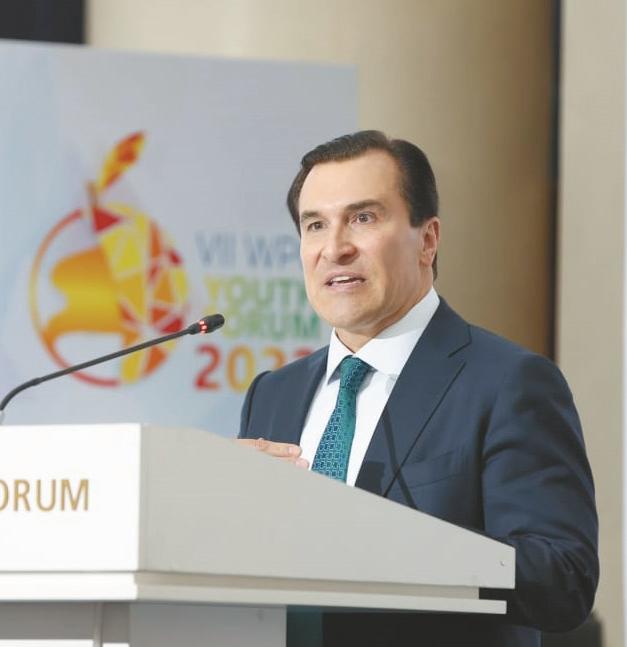
Joseph McMonigle, Secretary General of IEA
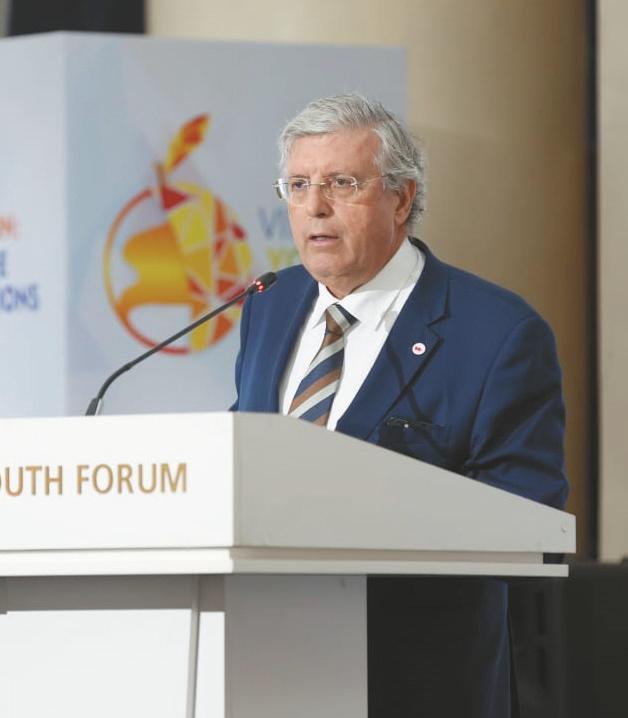
Pedro Miras Salamanca
Deputy Chairman of the Kazakhstan National Committee of the World Petroleum Council Dzhambulat Sarsenov, in his welcoming speech, stressed the relevance and importance of the discussion topics: "The current stage of the industry development indicates the need to intensify the search for opportunities for wider introduction of advanced technologies with the involvement of clean and safe energy sources in the energy balance. A new generation of managers and young scientists faces a severe challenge to adapt and improve existing areas of low-carbon energy to the technological capabilities of modernity." Mr. Sarsenov also stressed that "next year, the World Petroleum Council celebrates its 90th anniversary. The Almaty Forum will become the starting point for updating and improving the organization's activities. A special milestone of the current Youth Forum is the adoption of a new Strategic Plan for the development of the WPC."
Joseph McMonigle, Secretary General of the International Energy Forum, believes that society has been moving from one unprecedented event to another over the past two years. And now the markets are waiting for a global recession due to war, pandemic, and inflation. The world has faced a global crisis in recent years, which will affect all levels of the energy sector, and therefore the energy transition issues require special attention."
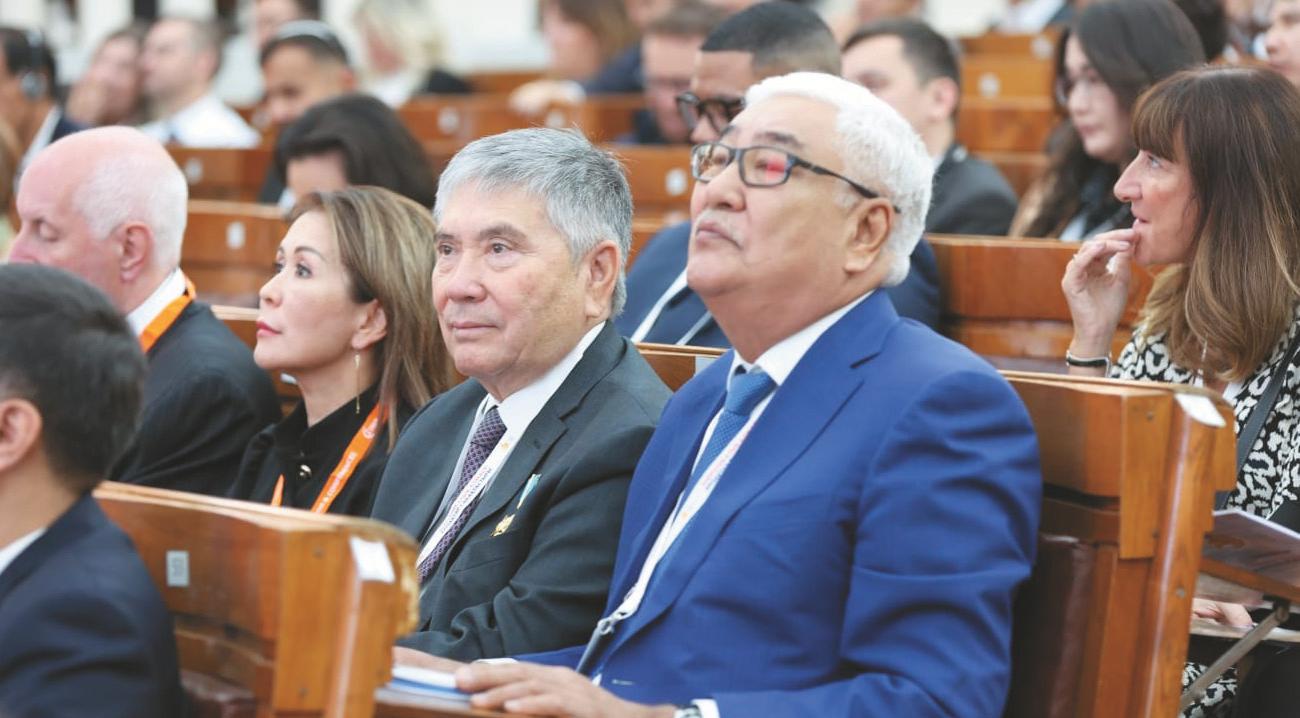
Uzakbai Karabalin, Kenzhebek Ibrashev
Fruitful discussions
Kenzhebek Ibrashev, General Director of the KAZENERGY Association, opened the Kazakhstan session, emphasizing the key message for all higher educational institutions of the energy profile: "The transformation of universities is necessary. Transformation in education is a complex process under the influence of advanced technologies. Despite the difficulties of recent years and the forced constant adaptation in all spheres of socio-political life, we all now need to study and work in conditions of uncertainty, accompanied by large-scale changes, along with the accelerating intervention of artificial intelligence. Recently, one of the companies involved in the development of mobile games told the world that the company was headed by artificial intelligence, which should transform existing ways of doing business. This is an example of the real use of AI. All these and other modern phenomena are challenges for universities in building a flexible education system with opportunities to remain innovative and technological, strengthening ties with the industrial sector of the economy."
Deputy Chairman of the Board of the KAZENERGY Association, veteran oilman, and winner of the highest award of Kazakhstan "Kazakstannyn Enbek Yeri", Uzakbai Karabalin, addressed the Forum participants. "A large number of IT personnel are being trained in our country. The production processes of the oil and gas industry will be significantly transformed in the future. An engineer will become an IT specialist equally. Oil and gas educational institutions will train IT workers and technicians. Students will see how the highest technologies work in production."
Interesting data from the world youth survey was provided by Timothé de Tonquédec, an analyst for low-carbon solutions at TotalEnergies: "For several years, we have been conducting a survey on the industry and the attitude of young professionals towards it. In 2021, a fact-based survey was presented in Houston. We collected opinions from 5,000 young people from 100 countries of the world. Of which 68% are industry workers, 23% are students, and the rest are searching for work. We found out that although salaries matter, professional growth is a key value for young people. Those who have had direct contact with the industry are more interested in working than those in offices. The first conclusion is that the pandemic has led to positive changes, such that companies can use flexible working hours. The second is that salary is not only money and success but also how we are involved in the industry. The conclusion is that when companies have internal ambassadors among young people, young professionals are more predisposed to a career."
"Important criteria for young people that UNESCO sees in research are the company's image, ethnic and gender diversity, and the opportunity to show talents. I like that young people ask, "What can I offer you?". They have other values. It is not an apartment or a car that is more important to them, but they want to change the environment, views, and introduce something new," Magnus Magnusson, Acting Director of the UNESCO Cluster Office in Almaty, came to this conclusion.
A motivational speech was delivered by Pinar Oya Yilmaz, Oil Production Advisor, ExxonMobil, USA. She urged young specialists "not to sit still, not to be afraid to voice their proposals, but always raise their hand, ask, offer, show their talent, introduce innovations."
Why do some organizations fail while others become successful, even using the same technologies and processes? – Wei Yuxiang, Vice President of CNPC Central Asia, asked. "The secret of such success is people in the right places. It is important to develop and retain them. How do we work? The first important factor is hiring employees based on their merits. Then we get a matrix of skills. The specialist becomes the director of the leading department after some time. We have training programs when we work with young talents, send them to the best universities, and allow them to study. This is especially true for the best employees. We are currently trying to develop this program with Kazakhstani universities."
Daniel Gottschall, Managing Director of Die TUM Campus Heilbronn, is confident that "energy transformation is not only a transition to green hydrogen and other energy sources. This is the creation of a new ecosystem. Universities and practices should unite here. We need several types of technical disciplines based on blockchains. We can create a new kind of university using technology to work in economic zones to manage this process."
The Rector of the Kazakh-British Technical University, Maratbek Gabdullin, also addressed the forum participants. "Today, companies can conduct joint research at universities where the main resource is human capital," he said. "Students, undergraduates, and doctoral students can be actively involved in this process and, in the future, already work in these companies. They no longer need to be retrained. After all, it is not for nothing that they say that a graduate in a technical specialty can easily study other socio-humanitarian areas. However, not every graduate of economics and humanities will be able to continue his studies in technical specialties."
Siddharth S Saxena, a professor at the University of Cambridge, spoke about the importance of developing and supporting scientific research. The professor is sure that the success of Cambridge is based on the fact that their professors are engaged in teaching six months a year and the rest of the time doing research. "The researcher and the teachers should work together – this should be part of the curriculum. Their results should be passed on to students."
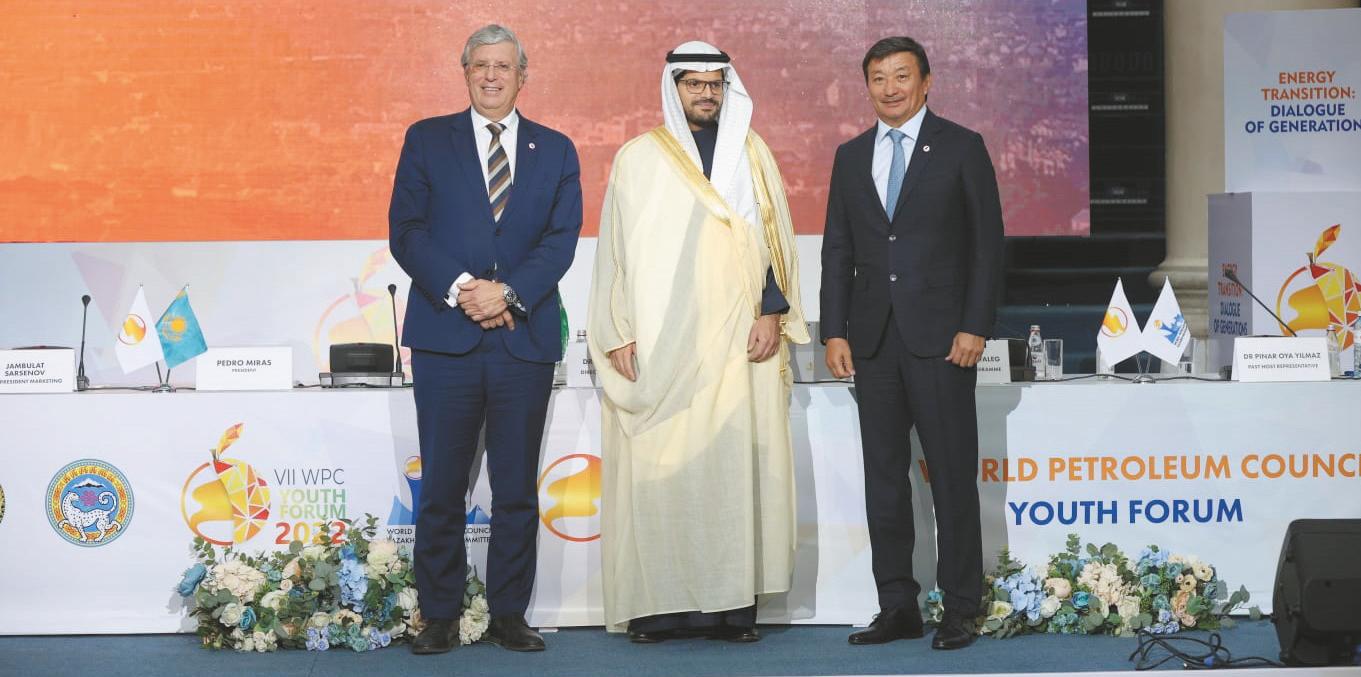
Abdulkhat Ismailov, Dean of the School of Energy and Oil and Gas Industry, agrees with him: "Today it is impossible to imagine training specialists for the oil and gas industry without a practical component. This approach is met at KBTU by attracting industry specialists to conduct guest lectures and master classes. The industrial committee of the school solves the issues of updating working curricula and introducing new, in-demand disciplines into the educational process. It is also planned to expand the practical training of students with maximum use of the training drilling site.
WPC Roadmap
Within the framework of the event, meetings of the WPC were also held, resulting in the WPC Strategic Plan for 2022-2026 being adopted.
Work on the development of the Strategic Plan began during the Houston cycle (23rd Congress) in response to the need for the evolution of the World Petroleum Council, considering the new challenges facing the industry. The ultimate goal of the Plan is to create a roadmap for the formation of the WPC as a unique global organizational structure with maximum value and usefulness for its members.
The Strategic Plan will focus the development of the WPC on the following seven blocks:
-
Promotion of innovations and new technologies.
-
Simplification of cooperation.
-
Support for ESG-based management.
-
Acceleration of the energy transition.
-
Demonstration and implementation of best practices.
-
Expanding cooperation boundaries.
-
Reliability of the organization's operational activities.
At the same time, holding the World Petroleum Congress, which considers all seven fundamental blocks of the updated organization, will remain a vital aspect of the activities of the WPC. Each congress will have a special target orientation. All congresses will include an innovation block and strategic sessions dedicated to cooperation with other sectors of the economy and stakeholders.
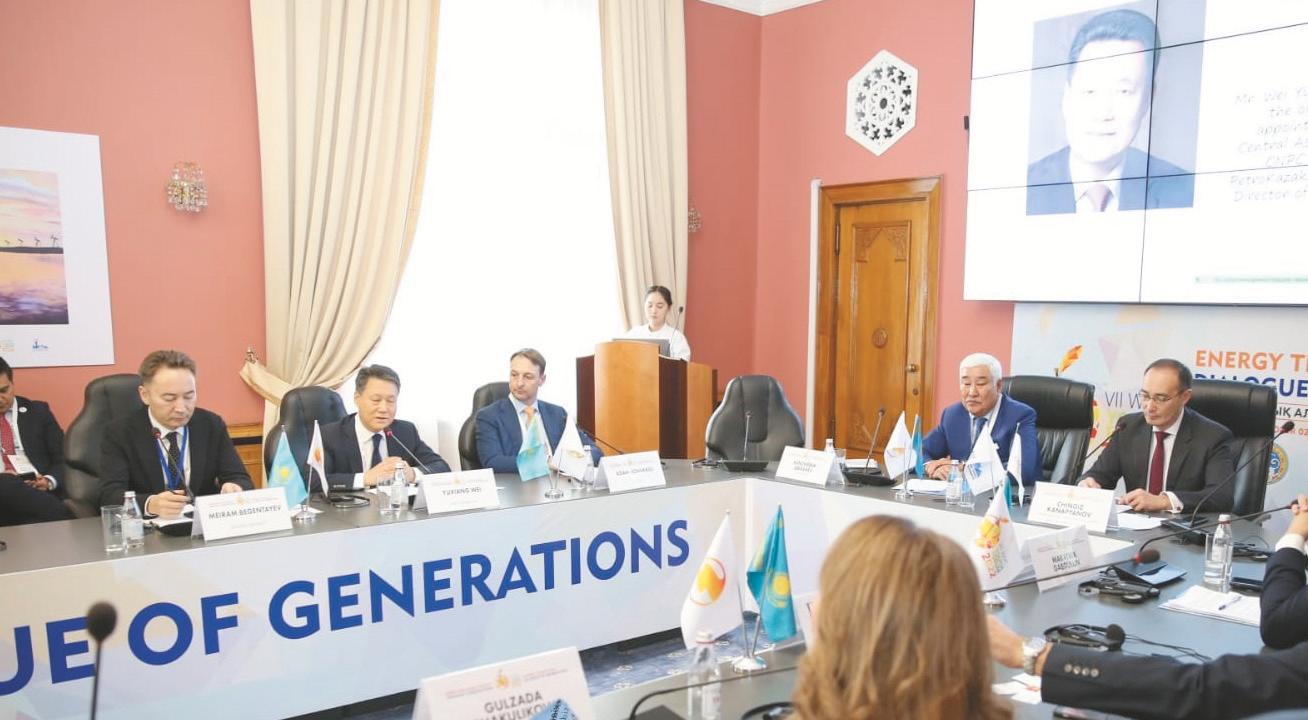
The World Petroleum Council (WPC) is a non–profit organization that unites around 60 world oil and gas countries to promote dialogue on responsible production and use of global energy resources.
Kazakhstan received the right to host the Youth Forum in December 2021 at the World Petroleum Congress in Houston, USA. Previously, Youth forums were held in Beijing, Paris, New Delhi, Calgary, Rio de Janeiro, and St. Petersburg. The World Petroleum Council Youth Forum is being held in the Central Asian region for the first time. The Kazakh-British Technical University in Almaty was chosen as the venue since it is here that the strongest personnel in the field of energy are trained. Thousands of students study IT, finance, economics, and engineering.
KBTU is one of the key partners of the KAZENERGY Association and a representative of the Kazakhstan National Committee of the WPC. KBTU graduates are often employed in the enterprises of the energy sector of the Republic of Kazakhstan and companies abroad.



